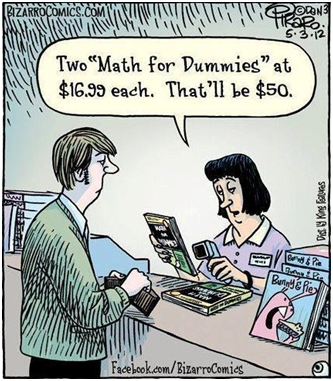Are you sure that the laws of God are absolute—that they are meant to apply when there is a moral conflict. For example, is it wrong to lie in order to save a life? I say it is morally right to do so. For moral imperatives can be placed in a hierarchy. (This theory of morality is known as hierarchalism). Those behaviours near the top of the hierarchy take precedence over those lower down. For example, the moral imperative to save a life takes precedence over the moral imperative to refrain from lying.
Menno Simons (after whom Mennonites are named) lied to save his own life. An official who sought to kill him, caught up to his carriage one day and asked the driver whether Menno Simons was in the carriage. Menno was himself the driver. Menno shouted down to the occupants of the carriage, “Is Menno Simons down there?” Someone shouted back up, “No.” Then Menno turned to the official and said, “No. Menno Simons is not down there.”
Strictly speaking, Menno did not utter that which was false. Nevertheless he deceived the official into thinking that he was not in the carriage. And that’s what lying is—deceiving. One can say what is true, and yet lie (if he is saying it to deceive). One can also say what is false and yet not lie (if he does not know it is false).
Paidion, good point. Romans 5:13 says this: “For until the law sin was in the world, but sin is not imputed when there is no law.” One has to wonder what this means. Could it be just another way of saying all is fair in love and war?
If “sin” is defined as “transgression of the law”, then where there is no law, there is no sin.
In Canada and United States, if you drive through a red light (because no one at the intersection is coming from either left or right, and you are caught, you will be fined. But I understand that in Britain you can do this with impunity, since there is no law against it. So driving through a red light in Britain (if no one is coming from the left or the right) will not be counted against you.
I think Paul may have meant something along that line in his Rom 5:13 statement. Before the law was given, people were breaking what later became law. But it wasn’t counted against them prior to the law.
In our day, “sin” is thought of as “immoral behaviour.” With this concept of “sin” Paul’s words have no meaning or do not apply.
Speaking of truth and sin. A National Enquirer story says Ted Cruz has had multiple affairs. There is a BBC story entitled US Election 2016: Cruz blames Trump for ‘tabloid smear’.
Who is right 
Ted Cruz 
Donald Trump 
National Enquirer 
Does that mean I shouldn’t believe everything in respectable papers - like the National Enquirer 

I think a good question is: What is Truth in THIS situation?
Not saying there is no 'True Truth" - but that the concept is often determined by the situation/language game/life experience etc.
That’s an excellent point Dave and one that I agree with 100 percent. Truths clash and contradict. Reality is paradoxical. Truths do exist so it’s not relativism.
Paidion, I see what you are saying. Using the example of Jesus healing on the Sabbath, according to man, this was against their own self-imposed law. I was basically thinking more along the lines of God’s laws. They do still apply to all men, believers or non-believers. Murder, for example is against the law of God. Should the murderer be killed in the process of bringing one to justice, this would not be considered a sin. For in the murderer’s heart there is no law, or the law is being ignored.On a grander scale, where lawlessness rules e.g. evil dictators, or where all is in a chaotic state of war, I would say here again there is no law.
It’s interesting how Philosophical News, Carm and Got Questions answered this:
Got questions: What is truth?
CARM: What is truth?
Philosophical News: What is truth?
Hey Everyone- excellent comments shared so cool to read them all!!! @Paidion I would like you and others to expound more upon the idea behind Paul saying where there is no law there is no sin When God spoke to Cain about his anger and jealousy he had inside him after God accepted Abels offering over his, why did God say sin was lurking at the door but he must master it?? Also, in agreeing with you about how sin currently is mostly viewed as immoral behavior. How would you suggest we get back to a more comprehensive view of sin as paul intended and what would you say that is??
LLC, the word “murder” means “immoral killing (of a human being)” and this is ALWAYS sin. God’s law against murder always applies. No one who kills in self-defence or accidentally, would ever be said to have murdered.
You will notice that the text doesn’t say merely that God accepted Abel’s offering over Cain’s. Some people make the mistake of thinking that God wanted meat and rejected vegetables as an offering. The text says that God accepted Abel and his offering and did not accept Cain and his offering. Why did He not accept Cain and his offering? Because Cain was sinning. So God said to Cain, “If you do well, will you not be accepted? But if you do not do well, sin is lurking at your door but you must master it.” Cain must cease to do evil and begin to do well consistently as Abel did. Then he and his offering would be accepted by God (even if they were vegetables). But Cain didn’t change his ways. Out of his anger and jealousy, he killed his brother.
Paidion, From what you’ve said, it sounds like we both would agree that the law against murder is absolute. In applying this thought to the example you used in the case of Menno Simons, I suppose lying might be the same. He would be lying only to protect his own life against those who sought to murder him for no just reason. This could be considered self-defense.


